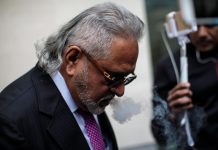This article, written by Shoronya Banerjee from Amity University, Kolkata discusses the Bofors scam and the legal proceedings that had followed it.
Table of Contents
Introduction
With a world routing for equality, harmony, financial stability, and so on, corruption and scams have time and again looted and deceived people causing a loss of huge amounts of money. Corruption has turned out to be a great burden on our society with it existing along with every aspect of our lives. There are ways and laws to combat it, but most of the time the people combatting can get on with their greed and get involved in the vicious cycle of corruption. Incidents occur in ways supporting the existence of the cycle of giving and accepting bribes. It almost seems like laws are made and amended in ways to suit the possibility of letting the system of corruption exist.
Most of the politicians especially the ones in power pave the way for laws favouring themselves. Several irregularities and political inclinations give rise to corruption cases, which makes it difficult to convict the offender. Historical resources like Kautilya’s Arthasastra also showcased the existence of corruption since 2400 years ago. Corruption is usually followed by scams, a type of dishonest and fraudulent way of business, mainly robbing large numbers of people or the country of its money by creating a facade and deceiving everyone. Our society and nation over the years have faced several scams and scandals, half of which haven’t been released to the public. The Bofors Scam was similarly such a deal which was a scam. It had several famous entities involved along with the then Prime Minister Mr. Rajiv Gandhi. This scam was seen as a criminal conspiracy with the involvement of several common men, public servants, and politicians.
The Role of the Congress Government
During the term of certain Congress Ministers in several parts of the country in 1937 till 1939, several reports and allegations were put forth about the ministers being corrupt and abusing their powers. In the face of the Second World War, the exorbitant budget for obtaining essential supplies along with the procedure of control and licensing system paved the way for dishonest officials and businessmen to continue with their corrupt practices and activities. The independence of India in 1947 was followed by the Indian National Congress (INC) appearing as a dominant and commanding political party. Rapid reform policies had led to a stronger establishment of the party. Political parties felt the requirement for funds to maintain the respective political parties, especially at the time of elections when the candidates required monetary support to appear successful and victorious in the elections. For this reason, parties often inclined towards illegal means and activities which also led to a relation formed between political leaders, contractors, businessmen, and so on for successfully giving effect to the illegal means. Most of the time successful elections to the Parliament and State Legislature turns out to be an impetus for people inclined towards corrupt means, power gives them a better opportunity to resort to corruption.
After Mrs. Indira Gandhi had lost the national elections, but after 1977 she had again traced back herself to the position of power. But she was soon murdered by her bodyguards on 31st October, 1984. The victory of the Congress party in the 8th Lok Sabha elections was Mrs. Indira Gandhi’s eldest son, Mr. Rajiv Gandhi’s reign. Mr. Rajiv Gandhi while in power had taken certain controversial steps and formulated policies to control the people of the nation and along with this, his regime was also blamed for carrying out illegal and corrupt activities. One of the most serious allegations was that Mr. Rajiv Gandhi was involved in the Bofors Scam where certain guns had been purchased from a Swedish Company for the requirement of the Indian Army but this trade was not notified and without any transparency. But soon a Defamation Bill had been introduced on 29th August, 1988 in the Lok Sabha and it was also passed immediately the next day. This Bill was introduced immediately after the allegation of corruption on the Rajiv Gandhi Government, this bill would control and prohibit the media from posting anymore information and news on them otherwise it amounted to defamation. Large sums of money were allegedly passed and paid to foreign agencies for the deal of buying the guns. Mr. Rajiv Gandhi was accused of taking bribes and continuing with the trade.
What was the Bofors Scam
The years of 1980 to 1990 saw a huge scam take place with the involvement of India and Sweden with the Indian National Congress playing a great part in it and the Prime Minister of India, Rajiv Gandhi being one of the prime suspects. A $1.4 billion deal had been signed between the Swedish weapons manufacturer Bofors and the Government of India for the selling field howitzer guns, and supply twice the amount as laid by the contract. It was a huge deal where tons of money was invested, even money deviated from other fields and projects.
India had signed a contract worth billions of 24th March, 1986. They had entered into a contract with AB Bofors, Swedish arms manufacturers for buying more than 400, 155mm howitzers and ammunition for the Indian Army. But suddenly the Swedish National Radio brought in front of all that how about $40 million had been paid to agents and middlemen as commission for ensuring the success of the deal. But this contention was clearly denied by both the parties. To avoid any sort of exposure the Rajiv Gandhi’s government had also passed a bill to suppress the press. In 1987, Rajiv Gandhi had denied these allegations in the Lok Sabha. But in the same year, Sweden’s National Audit Bureau had released a report highlighting the payment of $40 million by the Swedish company, Bofors, to Indian middlemen but still quite a bit of the complete report was not revealed as it involved bank secrecy protocols. This report had also notified that the investigations related to this case had been under undue influence and handled accordingly mainly because of the lack of cooperation from Bofors company. Although in August of the same year the Bofors had confirmed the allegations of the payment they had still refused to disclose information on the middlemen.
Rigorous and persistent investigations had soon revealed the role of Ottavio Quotrochi, an Italian businessman in the deal as well. Information regarding Ottavio Quotrochi’s secret bank accounts had been discovered and it had been traced that he had benefited almost $7.3 million from the Bofors deal. The ninth general elections had seen three parties contending for the powerful position. Mr. Rajiv Gandhi’s doubtful integrity and character had resulted in him losing his position to V. P. Singh.
Legal proceedings of the scam
- After the report of Sweden’s National Audit Bureau and a subsequent report published by ‘The Hindu’ newspaper on companies dealing with trading in guns in India and the bank accounts related to the deal. It was after this that the Comptroller and Auditor General of India had taken on this case to investigate further. In 1989, the Comptroller and Auditor General of India came up with the report showcasing the serious misdeeds related to the deal, and its financial part as well. Every gun had certain limitations and criteria in the form of General Staff Qualification Requirements for following regulations regarding the guns but in this deal these parameters weren’t prepared to make the deal defective.
- France, Britain, Austria, and Sweden had different kinds of guns competing in the market. The Bofors gun’s burst firing capacity had put it at the top position, better than all the guns in comparison. The Bofors had also lowered its price by almost billions of dollars. The revelation of the commission paid by the Bofors had made India approach them to receive details about the amount paid or to whom it was paid but it was difficult to retrieve information from them. To retrieve the information Bofors was contacted on the matter of cancelling the contract and blacklisting them. As soon as the Bofors had agreed to send their delegate to India to deal with the matter, the government headed by Rajiv Gandhi had for some unknown reason cancelled this and stopped Bofors from sending any delegate to India.
- The Bofors scandal had taken away the position of power from Mr. Rajiv Gandhi, and he had lost the general elections in 1989 to Mr. V. P. Singh. Mr. V. P. Singh’s FIR had resulted in the Central Bureau of Investigation (CBI) taking on the case. The CBI had filed charges of cheating, forgery, criminal conspiracy, abuse of power, and so on against several people and companies against which the main suspects were Mr. Win Chadha, the principal agent of Bofors in India, Mr. Martin Adbo the former president of the company, Mr. Hinduja the owner of Pitco/Moresco/Moineas SA, and Mr. Ottavio Quattrocchi, an Italian businessman, for taking bribes and indulging in corruption.
- Criminal proceedings required information from the Swiss bank regarding the accounts where the Bofors had been paying for the middleman involved in the deal, it would also require the sealing of those particular accounts. The strong case and the scandalous deal had made the authorities agree upon India’s demands and freeze the five accounts in the banks. In this process it was also seen that money from one of the frozen accounts had been transferred to a sixth account. The CBI had given a list of 18 names as fast as it could which had the probability of being the beneficiaries of the second account. One of the lists had matched and thereafter, the sixth account had been frozen as well. In 1990, the Swiss authorities had also agreed to share information with India on the accounts. However, this was opposed by petitions filed in the Swiss federal court.
- An advocate, Mr. H. S. Chowdhary, had filed a review petition in public interest in the Delhi High Court for quashing the First Information Report filed by the CBI in 1990, and to also stop the rogatory letter to the Swiss courts. Mr. H. S. Chowdhary had claimed that it was his duty to uphold the rule of law as the case against the Hindujas, overriding the Joint Parliamentary Committee’s report was a step towards violating it. Justice M.K. Chawla has declined the issue of this petition and proceeded to conduct the hearings.
- The appeals of all the accused were dismissed by the Swiss Supreme Court. Ottavio Quattrocchi had left India in 1993 to never return. This was followed by a non-bailable warrant issued against him, but he had in reciprocation filed a plea for not appearing in an Indian court but this was as well refused by the Supreme Court. The case of Ottavio Quattrocchi vs Central Bureau Of Investigation (1998), Mr. Quattrochhi who was residing at Kuala Lumpur had filed a petition against the non-bailable warrant that had been issued against him. This request for a warrant was because of Mr. Quatrocchi’s alleged participation in the criminal conspiracy between public servants and private persons in India and abroad relating to the displacement of large sums of money and dealing in guns, towed vehicles and ammunition known as the Bofors scam. Certain public servants and related private persons had received the bribes. As per the investigation, the petitioner was the main suspect involved in executing the contract with AB Bofors in November, 1985, and, with further help of Swiss authorities, the petitioner’s role in laundering money from several accounts had been revealed. But the petitioner had claimed that he had been falsely accused, the F.I.R lodged didn’t even mention his name. It was further highlighted that the application filed by the CBI didn’t mention the offence as well. The provisions of the Prevention of Corruption Act shouldn’t have applied to the petitioner as he wasn’t a public servant also no such offence had been reported or stated against the petitioner that would call in for the application of the Indian Penal Code. But in the case, no substantial matter had resulted in the dismissal of this petition.
- In 2000, Win Chadda had landed in India to face trial and seek permission for going to Dubai for medical treatment but this was rejected. Soon this was followed by a warrant issued against Mr. Ardbo. Even though the Hinduja brothers had claimed that they had no relation to the funds of the Bofors Deal charge sheet was filed against Hinduja brothers and a report was also filed against Quattrocchi. In December, 2000 Quattrocchi was arrested in Malaysia, but not for a long time. India wanted to carry out the extradition of Quattrocchi but the Malaysian High Court had forbidden him. In 2005, it was also requested by the Additional Solicitor General of India, to unfreeze the two bank accounts of Quattrocchi for evidence of her insufficient evidence to link the accounts to the Bofors payoff.
- On 6th February, 2007, Mr. Quattrocchi was detained in Argentina soon he was released but his passport had been taken away to prevent him from leaving the country. Due to the absence of an extradition treaty between India and Argentina, the Government of India has lost the case as they couldn’t provide the key court order required for Quattrocchi’s arrest, later on, the government did not even appeal against this decision as a lot of time had been wasted in translating the court’s decision in english. Lack of evidence had also led to the Delhi court relieving Quattrocchi from the case. Even before this case could get over he had passed away by suffering from a heart attack in Milan. Along with this Justice R. S. Sodhi had quashed and dismissed all the charges against the Hinduja brothers in 2005 as well.
- In 2017, the BJP leader Ajay Kumar Agarwal had challenged the Delhi High Court order of dismissing the charges against all the accused in the Bofors scam case due to lack of evidence. The main reason stated for challenging the order was the existence of loopholes in the investigations carried on at that time. A bench headed by the then Chief Justice Ranjan Gogoi had rejected this appeal highlighting the unreasonability of the thirteen years of delay in filing of this appeal against the 2005 judgment of the high court. The grounds on which this appeal had been made was unreasonable and it did not explain the over 4,500 days’ delay in filing such an appeal.
Conclusion
It was revealed by a Defense Ministry Report that India’s weapons procurement process and programs have often been affected and related to controversies for it having diffused plans with faulty structures, no one to be accountable, multiple heads, hindrance in execution, and so on. India has faced several scams, for instance, the 2G spectrum scam where the government undercharged mobile companies for facilitating the allocation of licenses required to create 2G spectrum subscriptions for cell phones, Coal allocation or the Coalgate scam, regarding the Indian government’s allotment of the national coal deposits to public sector enterprise and private companies respectively, and so on. Out of these several scams the Bofors scam had received large media coverage. This case had involved highly influential people and their abuse of power for which they got away with it.
The CBI in this case was also blamed for not taking adequate steps at proper times. They hadn’t opposed the appeals of the accused in the courts well, proper letters needed to be sent to the international courts were not done in time, they had delayed lodging FIRs, and so on. Whether it was the inefficiency of the CBI or an internal corruption is yet a topic of debate. A difficulty faced during that time was in the pre-internet era most of the substantial materials were in Swedish, not much helpful as it hardly gave any clear information but this when declassified and seen from today’s perspective, those materials could bring in a different side of the case if it had been revealed at that time. Time and again the absence of much evidence turned in favour of the influential offenders in this case.
Even when Congress came to power again the first step it took was to dismiss and quash the charges of corruption and bribery against Rajiv Gandhi and other suspects related to the party. During the investigations of the Bofors scam when investigators had been sent to Switzerland they had also discovered transactions and information related to the 1981 submarine contract with a West German firm, Howaldtswerke-Deutsche Werft AG (HDW). Here too, it was claimed that $23 million had been paid to an Indian agent for securing the deal. This information was provided to the Indian Embassy in Bonn, according to which HDW didn’t want to reduce the price of the submarines because of the commission that had already been paid. Although such information was denied later.
References
LawSikho has created a telegram group for exchanging legal knowledge, referrals and various opportunities. You can click on this link and join:
 Serato DJ Crack 2025Serato DJ PRO Crack
Serato DJ Crack 2025Serato DJ PRO Crack











 Allow notifications
Allow notifications


